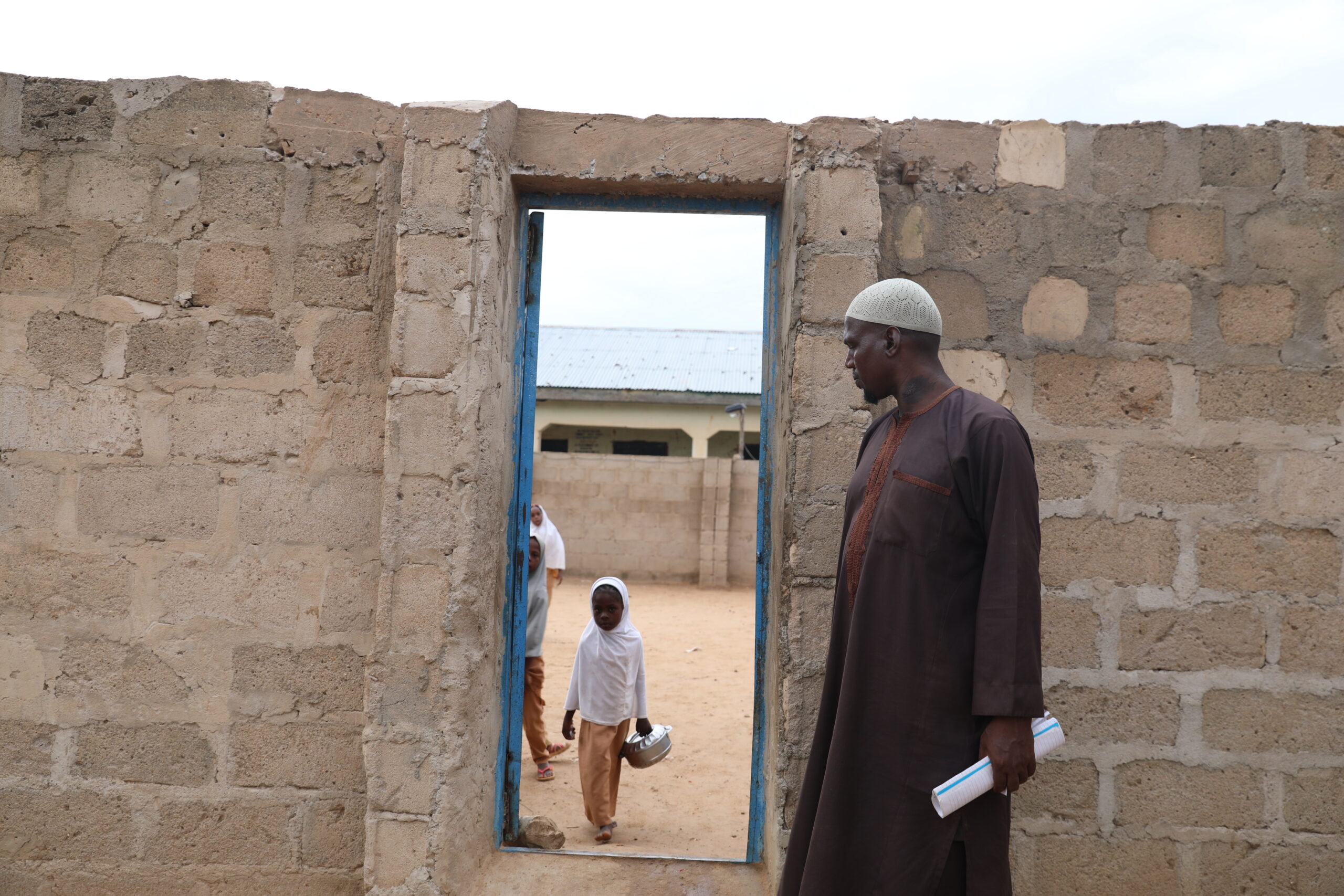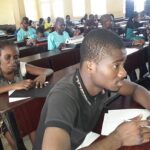Historical records and many documented manuscripts show that Islam was first introduced to the Kanem Borno Empire through trade across the Saharan desert.
From the arid regions of North Africa, it reached the North East region of Nigeria as early as the 9th century AD. According to the works of scholars such as Nura Alkali in the book Islam in Africa, the religion of Islam which easily propagated across this region can be attributed largely because of trade, the conversion of the local traditional rulers and the respect of its scholarly work.
Many scholars, historically, are also credited with the spread of Islam in the Northern States. In contemporary times, an arguably larger percentage of scholars are continuing in the tradition of teaching about Islam.
In the dusty town of Damaturu, the state capital of Yobe, an hour away from Borno State from which it was carved, Mallam Umar Zakariya Umar calmly teaches young children Islamic studies most evenings. Children of all ages walk from across the neighborhood dressed in white and brown uniform or every day clothes arriving towards an unfinished house. A colorful sight, they rush in and take a seat on a demarcated section filled with books and pens. In this allocated seating area, are an array of Allo; the traditional writing board for Islamic schools.
In his Makaranta, a Hausa term for school or Annahda, in its Arabic wording meaning renaissance or enlightenment, Mallam Umar stands in front of the hand painted wall writings that signify the sole purpose of the premises; an International School for the Holy Qur’an and Islamic Studies. Originally residing in the local government of Buni Yadi, he fled from terrorist attacks by the radical terrorist group Boko Haram. Whilst in his former area of residence, he was still an Islamic school teacher with almost 11 scholars educating about 40 students, including married woman.
The Boko Haram conflict which started from its epicenter in Maiduguri, Borno state, in 2009 had dispersed to many areas across Nigeria and a few West African countries. It had slowly moved to some parts of the neighboring Yobe thereby disrupting many activities for locals.
‘’The Boko Haram insurgency and its problems dispersed us. We had no choice but to flee. Some students where in the school and we had to take them with us’’, he explains.
Arriving the more stable town of Damaturu, Mallam Umar and his pupils were housed by the generosity of people. With the continued help of the community, the school started and operates on fees paid by the parents of some students.
“We have about two hundred pupils in this Makaranta now. However, many of the other students are orphans who are sponsored by the help rendered of the community especially our other students’ parents. About twenty of them’’, he says.
In a different section of the building, there is a room for a few of the orphans. With mornings for play and other activities, the school encourages integrated education and housing for the pupils.
“We are hoping to expand and create a more conducive environment for them where they thrive till higher education. We do not allow the orphans to be beggars on the street. I do not subscribe to roaming on the streets’’, Mallam Umar adds adamantly.
In a bid to include Western education, he also wants to bring more teachers to focus on subjects such as English and Math. “We wanted to teach English but we started with Hausa so has to create a foundation for easier understanding for a few subjects’’, he explains.
This desire to expand and innovate has also made Mallam Umar create a modern version of the Allo. Writing on a wooden board that sits on the lap of a student who intricately scribbles Arabic with a wooden carved pencil using charcoal mixed with water is a tradition of learning called Karatun Allo in Northern Nigeria.
At Mallam Umar’s school, the Western whiteboard has been redesigned in a size bigger than an iPad with students using a modern ink pen.
“To find the time to carve the wooden pens is difficult. We use the marker to make writing easy and the whiteboard can be wiped off for the next student to use. We are hoping that our students get the necessary help to continue creating new ways of learning’’, he says in optimism.
With Yobe state forging ahead with scholarships, Mallam Umar hopes there will be continued aid for the Islamic schools as well.


 Join Daily Trust WhatsApp Community For Quick Access To News and Happenings Around You.
Join Daily Trust WhatsApp Community For Quick Access To News and Happenings Around You.


